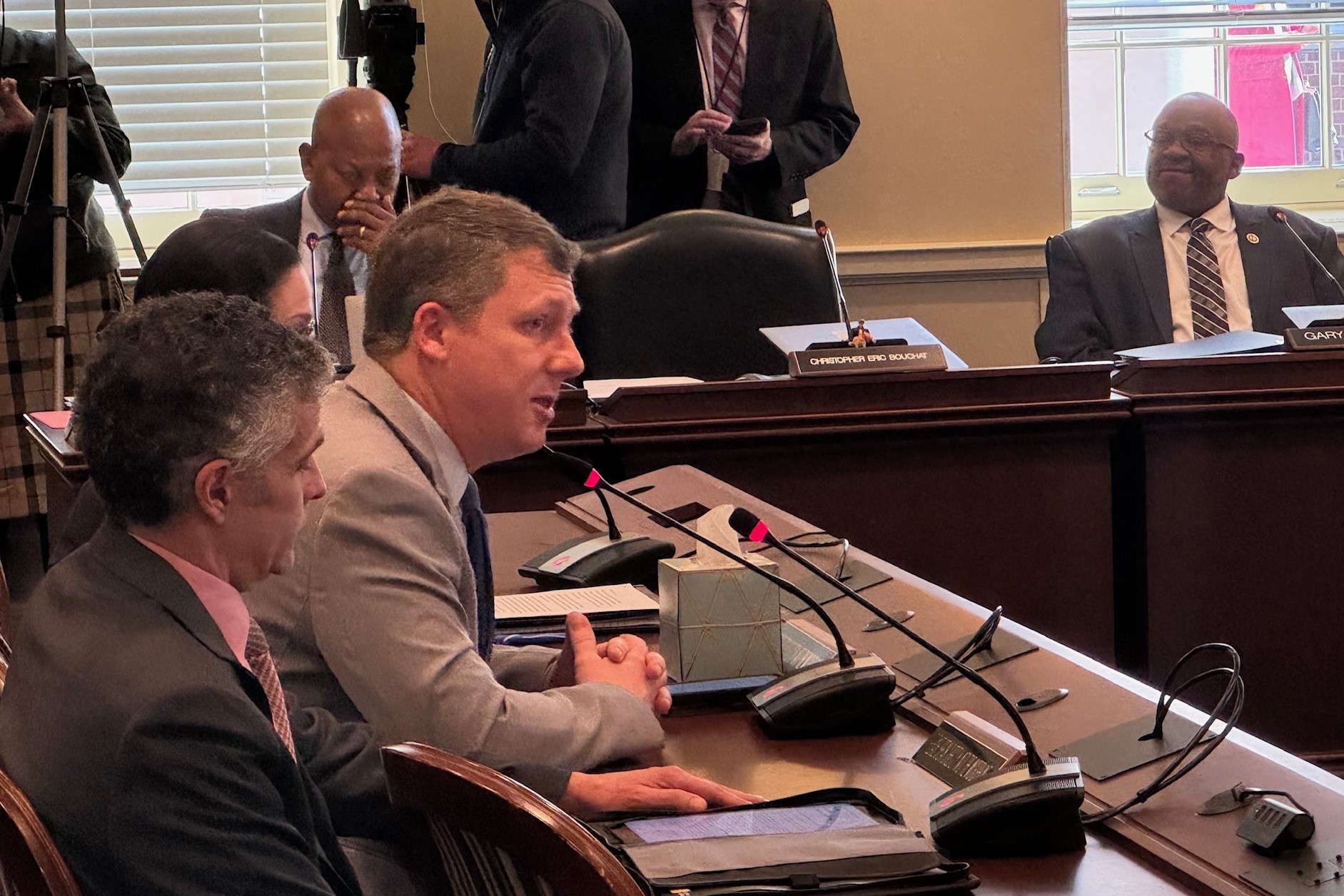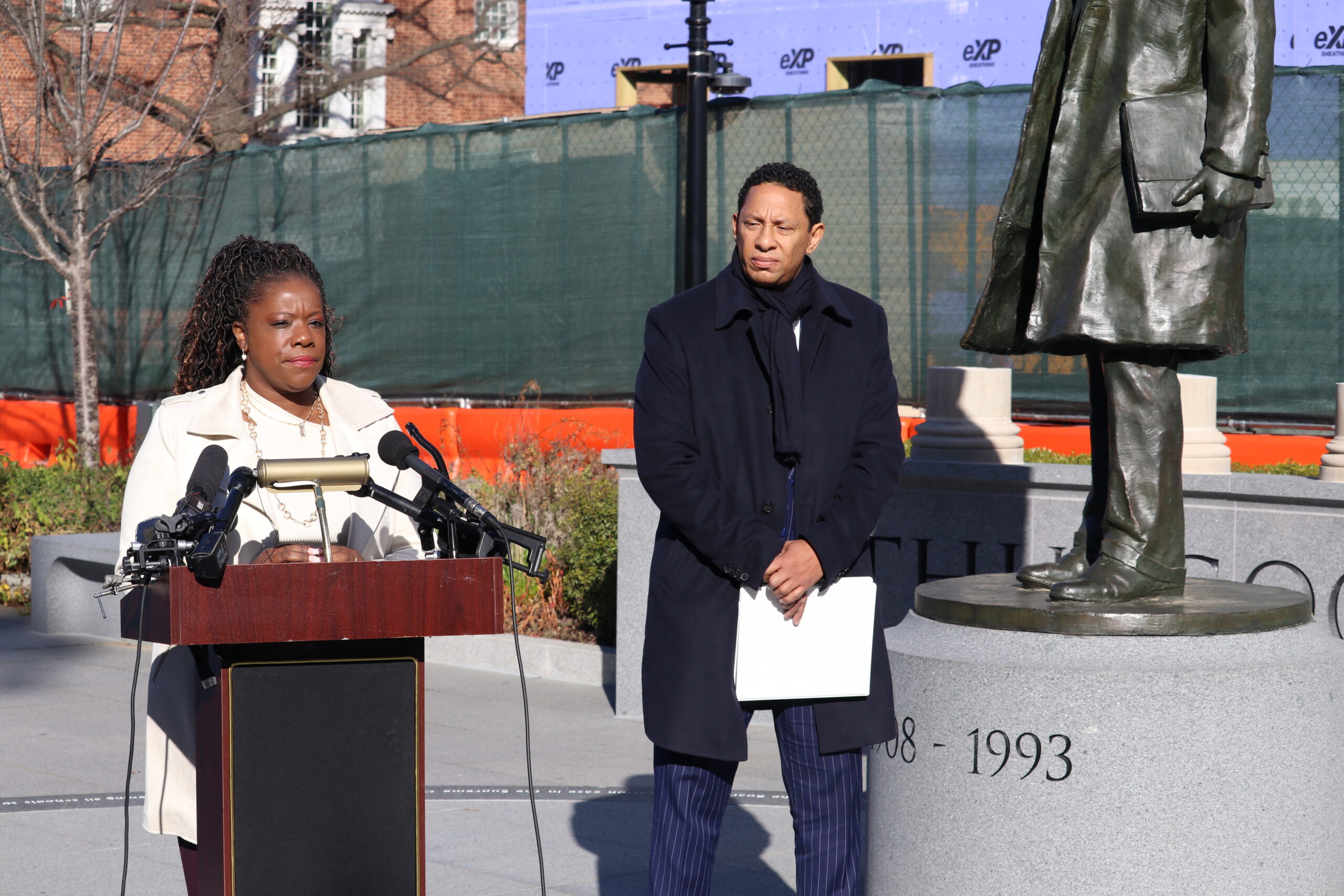Opinion: Baltimore Needs Strong, Imaginative Leaders Who Understand the Challenges of Women on the Margins

By Natasha Guynes
The writer is founder and president of HER Resiliency Center (HER), a nonprofit organization with offices in Baltimore and Washington, D.C., that helps vulnerable young women.
“You’re not pretty enough for the handcuffs.” Niaja hysterically cried as she recounted the days she spent locked in a john’s basement while I had been looking for her on the streets. At the time, Niaja was categorized as a sex worker who “wanted” to be selling her body.
The raw truth is that Niaja was exhausted from “the life” and had been looking for a way out. As she describes it, “this preppy white girl” (me) quickly built trust with her on the street, and she was ready for a different life. My offer was simple. I committed to treat her like a human being, get her connected to substance use treatment, and I assured her that she didn’t have to do it alone.
You might wonder how I could build this trust? Honesty and vulnerability.
“Hi. I’m Natasha from HER Resiliency Center. We support young women in the community so that they can achieve their goals. Everyone’s paths are different. For me, I sold my body for money at 20 and then picked up a crack pipe as a way to cope. Fortunately for me, I got clean from drugs and alcohol 20 years ago and today I’m able to help other women. Got a minute?”
That is a version of my spiel on the street. That is all it usually takes.
When HER Resiliency Center (HER) hits the streets of Baltimore City, our tactic is to engage the entire community through outreach. At the core, our focus is helping women understand their options. You see, no one really has options until they learn what they are. One of the options we offer is a triage process with a partner agency that provides substance use treatment. This is often the start of the rest of a woman’s life.
As part of my work as the leader of an organization serving women who are too often hidden in plain sight, I try to engage with policy leaders. I’ve learned it’s my responsibility to bring the real life impact that policy decisions can have on the lives of women in our city, and state. Policy leaders wear a lot of hats, and have to make a lot of fast decisions.
The reality is, very few have ever had to make the hard choice of selling their bodies so they have a place to sleep, and along with it, the need to escape the impact by self-medicating with substances. That is where leaders like me who have lived this life have the responsibility to report back — from an inherent lived experience, sure, but also from a real life position today.
So, as the leader of HER, I know that in order to provide options for women such as Niaja who are too often overlooked, I have a responsibility to build partnerships and identify city leaders who (a) already care about the need of the women we serve; or (b) are willing to really listen and learn about the needs of city residents who don’t already have something to offer in our quid pro quo system. This is one of the only ways that the Nilaja’s of Baltimore City have a chance at a different life.
Ivan Bates is an example of the kind of leader we need. Ivan, who has thrown his hat in the ring as a candidate for Baltimore City state’s attorney, has shown that he cares and is willing to listen and learn to address the complex challenges facing our city.
Sitting with Ivan a couple months ago, I told him about Steph, one of the women I work with, who said: “I’m a sitting duck.” What she meant is that nine other street level sex workers had been murdered in the two months before we met, and with the rising violence against women on the street she was convinced that she wouldn’t live through the winter.
Some other Baltimore City leaders would have cut me off to tell me that the one-off anecdotes I share don’t consider the “big picture,” or that this issue is “too expensive” to address, or worse, would have ignored the deaths of those nine women to tout some “progressive” narrative.
Ivan did none of those. He listened. He listened to learn more and to identify where the role of the state’s attorney fits in crafting solutions. I could see him connecting the dots and considering which agencies the state’s attorney would need to work with to truly serve the city. In every interaction that I’ve had with Ivan, he has demonstrated that all residents of Baltimore City deserve protection from violence, including women who, by choice or not, are involved in what the uninformed have labeled exclusively as “sex work” — with essentially no mention of sex trafficking.
Ivan continues to listen because he knows that fulfilling the state’s attorney’s responsibility includes protecting Baltimore’s less seen and voiceless from the violence of johns and/or sex traffickers. He also understands that the role of the state’s attorney is to recognize the difference between sex work and sex trafficking and the acquired skills to navigate the nuances.
Achieving the goal of protecting Baltimore will require efforts by stakeholders representing the full spectrum of our city: from people on the ground like Niaja and Steph, to me and the HER team, to other social services, to fearless leadership in our legal and political system.
Having seen what’s at stake (this can be life and death for women on the street — women who are much like I was 20 years ago), I hope that more local leaders running for office will emulate Ivan Bates and work to understand and acknowledge the complex nature of the issues facing our city’s marginalized women and be willing to do what it takes to represent our entire city — including women on the margins — and the threat to our city’s economic vitality. Baltimore needs to be seen as a destination for businesses seeking a strong and diverse workforce, not as the destination of choice for sex traffickers and johns.




 Creative Commons Attribution
Creative Commons Attribution